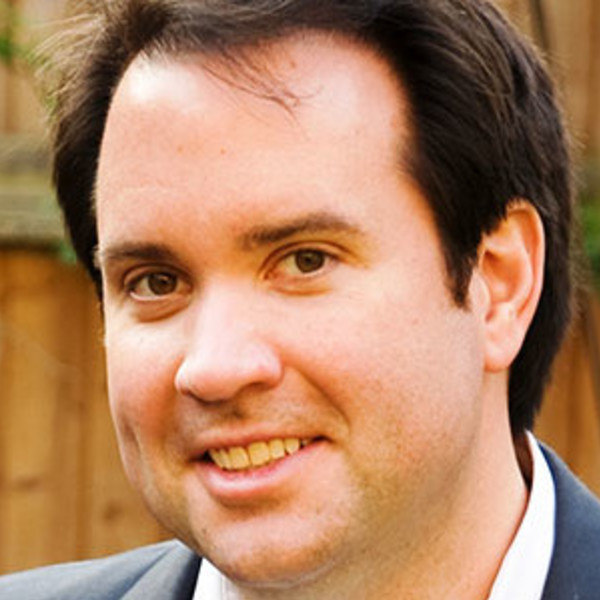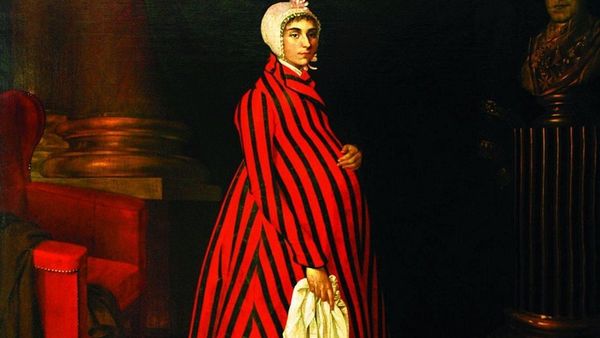A central part of my vocation as a Catholic moral theologian is thinking about and making the case for a Consistent Life Ethic (CLE). From Cardinal Bernardin to St. John Paul II to Pope Francis, we are taught from within this tradition that our defense and support of life must follow the Gospel and the Church’s teaching in ways which go beyond (rightly) condemning abortion as the great moral atrocity of our time. The values and principles which lead to this critique have both direct and indirect implications for other issues. Indeed, I have even tried to push a CLE beyond concern for human beings to also focus on protecting vulnerable and voiceless non-human animals from the horrific conditions and violence to which they are subject in factory farms.
And while there is no such thing as a “single issue pro-lifer,” there are folks who refuse to consistently follow their principles on abortion if they suggest crossing over into concern for issues which might ask them to question their idolatrous political commitments or personally cause them lifestyle inconveniences with which they are unwilling to deal. To be fair, this also happens with those who have a very different political orientation as well. I still cannot figure out, for instance, how those privileged people who point out that climate change is an emergent catastrophe can still somehow justify consuming products from factory farms.
It is undeniably true that we can walk and chew gum at the same time when it comes to different moral and political issues. It is also true that we are many parts in one body and that we are called to witness to the Gospel in different ways. But there is nothing about the CLE which requires that every single issue be given the same weight or priority. Far from it. We are called to read the signs of the times and respond appropriately to the moment before us—and that means putting issues into a hierarchy based on level of priority. Obviously, climate change should be prioritized more today than, say, funneling resources into treatments for leprosy. But a different moment in time would have required a different kind of ranking.
Cardinal Bernardin himself—the person most responsible for the CLE becoming “a thing”—was very clear about the priority he gave to abortion. Consider this exchange he had in the National Catholic Register in 1988. Significantly, it took place in the context of certain constituencies in the Church using his CLE to downplay the significance of abortion relative to other issues:
Interviewer: But a practical question must be dealt with. People see candidates running who think that a woman’s right to abortion should never be repealed; who do not support a human life amendment. Can Catholics disqualify such candidates because they violate the consistent ethic of life?
Bernardin: Well, certainly. That’s what the consistent ethic is all about. I feel very, very strongly about the right to life of the unborn, the weakest and most vulnerable of human beings. I don’t see how you can subscribe to the consistent ethic and then vote for someone who feels that abortion is a “basic right” of the individual. The consequence of that position would be an absence of legal protection for the unborn.
Now, as strong as that statement is, one could say that it was thirty years ago and we need to read the signs of the times differently today. What about the epidemic of gun violence, for instance? Isn’t that the kind of national emergency to which we must give priority over abortion? Not when one thinks about the absolutely massive numbers of our prenatal brothers and sisters currently being killed. Indeed, though only about 1.3 percent of abortions take place after 20 weeks gestation, the number of these killings is on a par with gun homicides in the United States. As an issue, abortion dwarfs not only these kinds of gun killings, but also killings via the death penalty. Indeed, only eleven people were executed in 2021. That is eleven too many, but it is a death toll which barely registers in comparison to the nearly one million babies killed each year by abortion in the U.S.
This should be enough all by itself to confirm Cardinal Bernardin’s insistence that abortion be given such a high priority that we could never vote for someone who considers it to be a basic right, but the signs of the times give us still more. Abortion is being used as a despicable eugenic weapon against the disabled, in some cases wiping out whole populations. Pope Francis rightly called these practices out as “white glove” Nazi-like crimes. The Holy Father was not engaging in hyperbole for dramatic effect: abortion is currently being used as a violent tool to attack the disabled at rates that do indeed put us on a par with the Nazis.
Beyond systematic and violent ableism, the signs of the times also reveal that abortion facilitates systematic and violent practices aimed disproportionately at the economically vulnerable, and especially economically vulnerable people of color. As I have written about elsewhere, this is horrific enough on its own, but it becomes absolutely diabolical when one thinks about the fact that these populations are the most likely to be morally and legally opposed to abortion. Our abortion law and practices have created an unimaginably evil social structure of sin in which these marginalized populations are directly and/or indirectly coerced into having abortions they know are the killings of their own children.
But suppose someone disagreed with Bernardin’s principle here and suggested instead what the signs of the times imply is that the pro-life movement should abandon the fight for equal justice under law for prenatal children and instead focus exclusively on making abortion “unthinkable” by attending to the social structures and other cultural forces which push so many women to have abortions. Wouldn’t a consistent life ethic push in this direction? This is an understandable position to take, but I think it misunderstands what is actually at stake in the debate over prenatal justice and how it relates to other issues. Let us do a quick thought experiment to help illustrate this.
Let us imagine an alternative U.S. American timeline in which, during the years following passage of the Civil Rights Act of 1964, wealthy white racists who objected to school desegregation funded legal challenges to the prohibition of discrimination on the basis of race. Further suppose that a major Supreme Court case struck down the racial provision of the act, just as these racists wanted, nine years later. Then suppose that virtually everything else stays the same in this alternative timeline over the next 50 years—except that militant segregationists (led by the Democratic Governor of Alabama, George Wallace) eventually gained full control of the Democratic Party such that it would come to do everything it could to defend Constitutionally-protected segregationism. These political realities meant that most anti-segregationists felt forced to work with the only party willing to support racial justice: the Republican Party.
Now, one could imagine that some 2022 progressives in this alternative timeline would say things like: “Criminal law isn’t the way to handle this difficult issue. There’s always been racism and segregation. If you make it illegal, segregation will still happen but in a more deep and entrenched way. We need to address the underlying social causes of this problem before protecting the civil rights of people of color.” And then they would appeal to concerns about candidates and judges with objectionable views on other issues: “What about the global emergency of climate change? What about gun violence? What the basic functioning of democracy? How can you be willing to put all these issues to the side based on a single issue?” Here is the bottom line of the ask: “Let’s support Democrats over Republicans and work to make segregation unthinkable.”
Of course, in this alternative timeline, that would mean voting for, and otherwise supporting, an explicitly racist and segregationist party. One which stood proudly for keeping a vulnerable population from receiving equal protection of the law. To drive home the point, let us imagine that they picked up Governor Wallace’s infamous mantra and made it their own: “Segregation today, segregation tomorrow, segregation forever!”
This kind of gross public evil has echoes in evil of the #ShoutYourAbortion chants we see from today’s real life abortion activists who have captured the Democratic Party. Rallies in favor of abortion rights reject “pro-choice” talk as too squishy. One must instead celebrate abortion as a positive good—the kind of health care which has empowered women to organize their lives and pursue their goals as they see fit. The Democratic Party now officially stands for no limits on abortion at all, proclaiming abortion as “core to women’s, men’s, and young people’s health and wellbeing.”
If you can imagine rejecting the ask in the alternative timeline to punt on racial justice and instead only work to “make segregation unthinkable,” then perhaps you can also understand why so many pro-lifers reject the ask in real life to punt on prenatal justice and instead work only to “make abortion unthinkable.” If one is committed to fundamental racial justice, rather than playing political games or citing polls on what Catholics think about segregation, then one is committed to doing the blocking and tackling of making sure that racial minorities have equal justice under law. This is also true for those of us committed to prenatal justice.
But again, we can walk and chew gum at the same time here. We can and should work to address the structural issues underlying the great evil of abortion just as we work for equal protection of the law for prenatal children. With the fall of Roe and Casey, along with a massive political realignment in the GOP toward populism, Pro-life 3.0 has arrived—and with it comes the possibility of new and creative political arrangements that were not possible before. The new space has been created, not only because we can now work far more easily and creatively with both Democrats and Republican at the state level, but because of the new chorus of conservative even national Republican voices calling for expanding social supports for women and families.
It is now genuinely possible to work for both prenatal justice and for paid family leave, robust child allowances, workplace protections and supports based on family status, shelters and other protections for women at risk for intimate partner violence, and so much more. This is especially true if one intentionally resists an idolatrous commitment to loving (or hating) those who identity with the political left or the political right. In short, it is a dynamite opportunity to advocate for the more complete and full vision of the good offered by Catholic Social Doctrine.
But those of us who embrace Bernardin’s CLE must be clear that as wonderful and important initiatives geared toward making abortion unthinkable are they will ring profoundly hollow without also insisting on equal justice under law for prenatal children. Let us finish with a word on what this means for Catholic voters, politicians, and other leaders—and let us do so by again drawing an analogy to segregation (this time through a real life example!) to help think this through.
In writing and speaking about the Eucharist and matters of fundament justice, I join increasing numbers of pro-life Catholics who invoke Archbishop Joseph Rummel’s efforts to end segregation in the New Orleans Catholic school system in 1962. The racist segregationists were outraged and even threatened to transfer their children to public schools or boycott the entire school year. Rummel issued numerous letters to individual Catholics begging for their cooperation while also being clear that they faced excommunication and denial of the Eucharist if they did not comply.
When three local Catholics organizing these protests did not comply, Archbishop Rummel excommunicated them. Some violations of human dignity are so blatant, and so gravely evil, that this unfortunate step needs to be taken. This was not about punishment but rather part of working toward the sinner’s conversion and welcoming them back into communion. And in this case, it worked: two of the three publicly retracted their views and were reconciled with the Catholic community.
The U.S. Church in a post-Dobbs world finds itself in a similar place when it comes to abortion. The priority we give prenatal justice, and the horrific stance Democratic politicians and other leaders take in utterly and publicly and grossly rejecting it, demands a similar kind of response. With Roe and Casey still in place, some could come up with a weak but at least plausible argument for (in some circumstances) not going all in with a full-throated endorsement of prenatal justice. That is no longer the case.
Catholic lawmakers and other leaders in our communions should support equal protection of the law for all human beings, including prenatal children. They simply cannot promote the wildly extremist position of the Democratic party and remain in communion with the Church—anymore than the New Orleans segregationists of the 1960s could remain in communion with the Church. People who make such choices, as Pope Francis has said, are “not in the community” and “cannot receive communion.”
Significantly, Cardinal Bernardin did not leave any wiggle room on this issue either. Catholics who choose to disregard prenatal justice are “dissenting not only from Church law but from a higher law which the church seeks to observe and teach.” Indeed, the Cardinal-Archbishop of Chicago insisted that the Church’s teaching on abortion “is binding not only because the Church says so, but because this teaching expresses the objective demands placed on all of us by the inherent dignity of human life.”
The issues of his own time made Bernardin’s vision on abortion important and urgent, of that there is no question. But the signs of our own times reveal that his vision is, if anything, even more important and urgent. Rummel was living through a hinge point of history when it came to racial justice. We are living through a hinge point of history when it comes to prenatal justice. Indeed, the moment before us is so big that young people, many years from now, will almost certainly ask what it was like to live through this time and what we did to respond. Let us act in such a way that we can be proud of the answers we give them.


